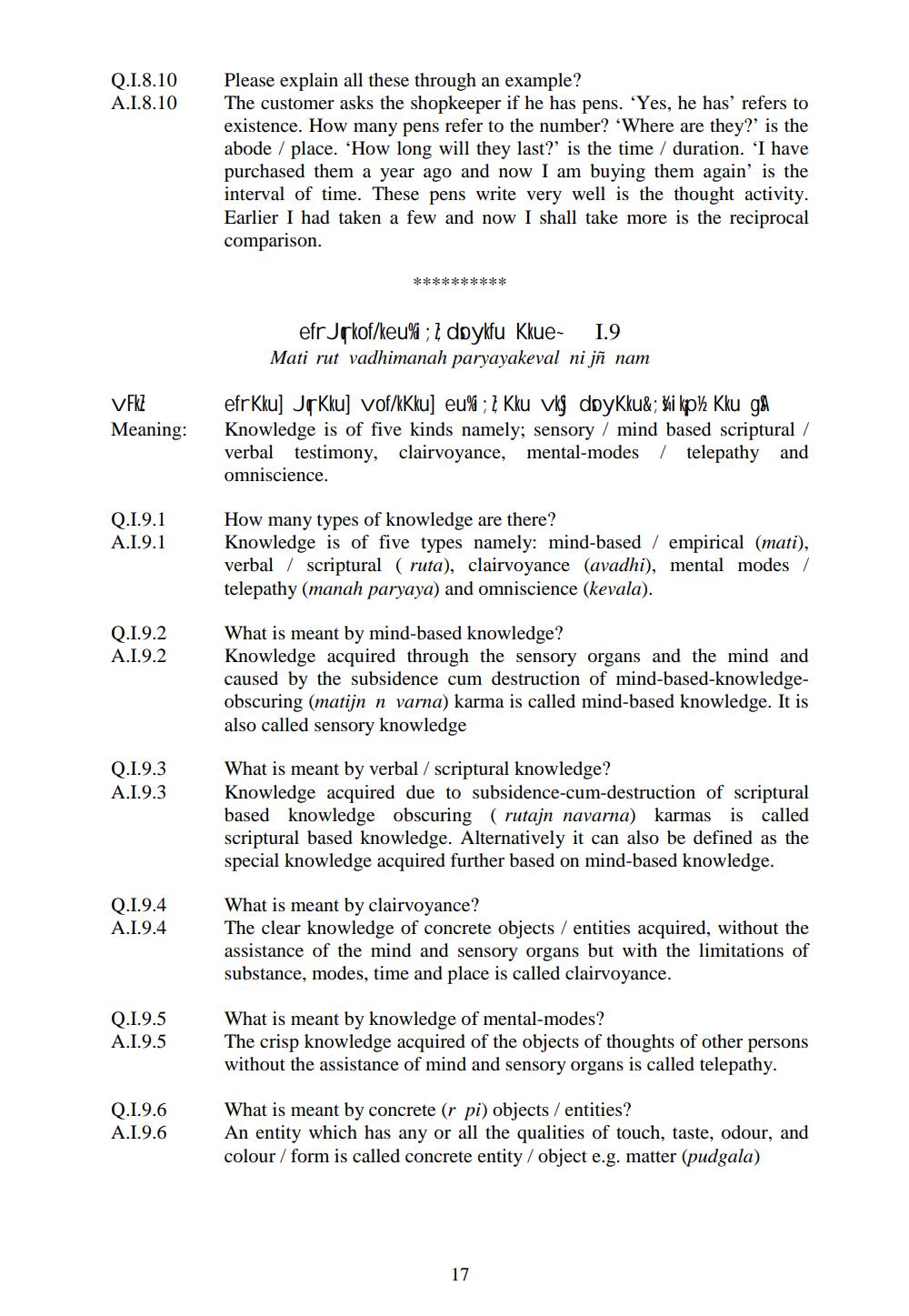________________
Q.1.8.10 A.1.8.10
Please explain all these through an example? The customer asks the shopkeeper if he has pens. 'Yes, he has' refers to existence. How many pens refer to the number? 'Where are they?' is the abode / place. 'How long will they last?' is the time / duration. 'I have purchased them a year ago and now I am buying them again' is the interval of time. These pens write very well is the thought activity. Earlier I had taken a few and now I shall take more is the reciprocal comparison.
**********
efr Jokof/keu% ; & doykfu Kkue- 1.9 Mati rut vadhimanah paryayakeval ni jñ nam
VFKZ Meaning:
efrKku] JsKku] vof/kKku] eu%; Kku vkg doyKku&; $i kph Kku gA Knowledge is of five kinds namely; sensory / mind based scriptural / verbal testimony, clairvoyance, mental-modes / telepathy and omniscience.
Q.1.9.1 A.1.9.1
How many types of knowledge are there? Knowledge is of five types namely: mind-based / empirical (mati), verbal / scriptural (ruta), clairvoyance (avadhi), mental modes / telepathy (manah paryaya) and omniscience (kevala).
Q.1.9.2 A.1.9.2
What is meant by mind-based knowledge? Knowledge acquired through the sensory organs and the mind and caused by the subsidence cum destruction of mind-based-knowledgeobscuring (matijn n varna) karma is called mind-based knowledge. It is also called sensory knowledge
Q.1.9.3 A.1.9.3
What is meant by verbal / scriptural knowledge? Knowledge acquired due to subsidence-cum-destruction of scriptural based knowledge obscuring (rutajn navarna) karmas is called scriptural based knowledge. Alternatively it can also be defined as the special knowledge acquired further based on mind-based knowledge.
Q.1.9.4 A.1.9.4
What is meant by clairvoyance? The clear knowledge of concrete objects / entities acquired, without the assistance of the mind and sensory organs but with the limitations of substance, modes, time and place is called clairvoyance.
Q.1.9.5 A.1.9.5
What is meant by knowledge of mental-modes? The crisp knowledge acquired of the objects of thoughts of other persons without the assistance of mind and sensory organs is called telepathy.
Q.1.9.6 A.1.9.6
What is meant by concrete (r pi) objects / entities? An entity which has any or all the qualities of touch, taste, odour, and colour / form is called concrete entity/object e.g. matter (pudgala)




